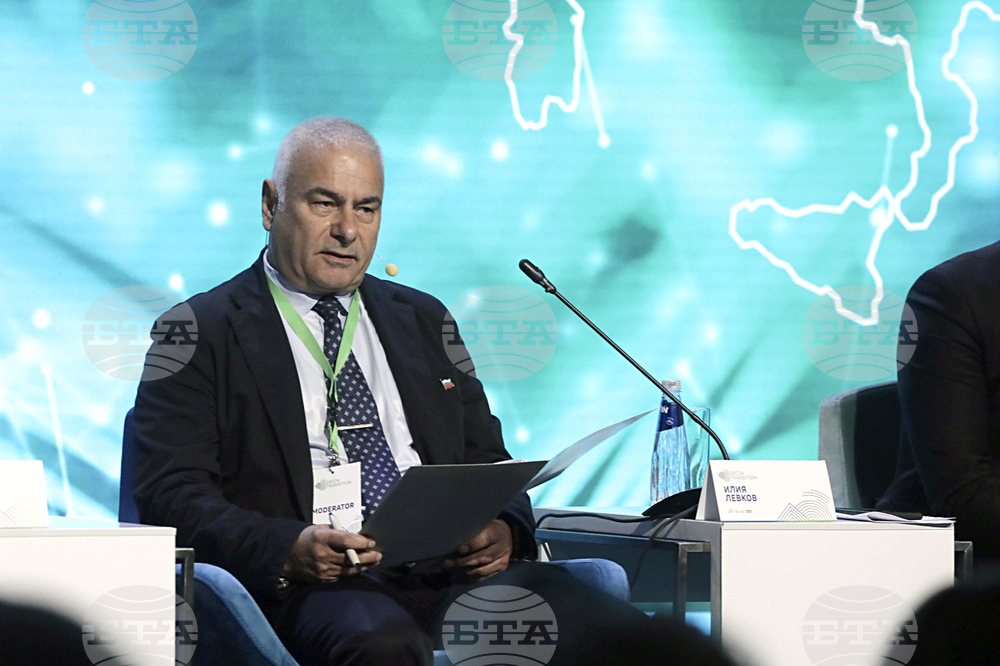Our transport connectivity will enable us to be culturally connected, business connected, linguistically connected. This is how Iliya Levkov, Chairman of the Board of Directors of Industrial Cluster Electric Vehicles (ICEV) and moderator of the discussion, summarized the statements of the participants in the panel “Future of transport, digitalization, green cities and food security” at the forum “The Green Transition and the CEE countries 2023” , which takes place in Sofia. The organizers are dir.bg and 3E News and BTA is a media partner.
Levkov noted that if there are no barriers at the borders, people will communicate with each other as nations, culture and as business. “We ourselves put a cog in the wheel of progress,” he added. Iliya Levkov noted that before us is a huge challenge, what will we give as an inheritance to our children. “Are we going to continue to be divided or are we going to be a community. Our transport connectivity will enable us to be culturally connected, business connected, linguistically connected,” he said.
During the panel, Dimitar Savov, Director of the Transport Policy Directorate at the Ministry of Transport, stated that the department’s main priority is the development of transport connectivity and emphasized the need for a significant improvement of the railway and road infrastructure. According to him, progress on the commitments made to the EU for railway infrastructure is not good so far.
Savov noted that the following day the Minister of Transport, Georgi Gvozdeikov, would visit Romania and the main topic would be the talks on connectivity between the two countries. He reminded that Bulgaria had sent Romania an agreement for the construction of a bridge as early as 2022. Romania had stated that conciliation procedures are underway. It is about the second bridge between Ruse and Gyurghevo, and its construction has the support of the European Commission. He also noted the projects with Greece to connect our ports with Kavala, Thessaloniki and Alexandropoulis. With North Macedonia, we have declarations at every level for the development of transport projects, and according to Savov, there is progress on the missing part of the railway corridor there, since finances have been secured and construction has begun. Abou the border with Turkey, negotiations are underway for a new border crossing and connection between Smolyan, Elhovo and Edirne, he added, pointing out that work is also being done on the railway connection and the highway to neighboring Serbia.
Dr. Dina Tsonevska, an expert at Road Infrastructure Agency, commented that the agency identified as the main problem that we have a lack of continuous, consistent and permanent transport networks that would ensure fast and safe movement over longer distances.
She added that the construction of charging stations along the republican road network is planned, which is included in the recovery plan. It is necessary to guarantee a minimum coverage for cars at a maximum distance of 60 km, and for heavy-duty vehicles at 100 km.
Business representatives also took part in the discussion, as Vasil Lyaskov, executive director of PIMK Holding, stated that according to statistics, railway transport generates one fifth of the carbon footprint generated by road transport. He noted that about 17% is rail transport in Europe of the total transport, and the EU plan is to increase this percentage significantly.
According to Lyaskov, absolutely no one in big business is interested in their carbon footprint, they do it from a marketing point of view. He noted various problems with transport in the EU, pointing out that the difficulties have a solution, but everyone who has responsibility must take it and together “make the necessary changes”.
Dian Dimov, executive director of the Port of Burgas emphasized the climatic problems that also affect shipping through the change of winds. He talked about the construction of ships that can be charged with different types of fuels, including electricity, with the aim of having a smaller footprint on the environment, for which the construction of charging stations is also planned.
Nikola Kosev, director of Operation Terminal West, BMF Port Burgas AD, pointed out that the company’s policy is based on the concept that an initiative in the direction of the environment and the well-being of both business and people, in order to be sustainable, must be hand in hand with economic logic and rationale. According to him, this gives stability and development to green solutions as well.
The Executive Director of GEK TERNA, Greece, Emmanuel Moustakas noted that for years the peoples of the Balkans have built borders between themselves, but recently they have realized that they need connectivity and a shift to green solutions, which cannot be done without cooperation. The good thing is that things in transportation that we didn’t think were possible until a few years ago are suddenly happening, he said.
